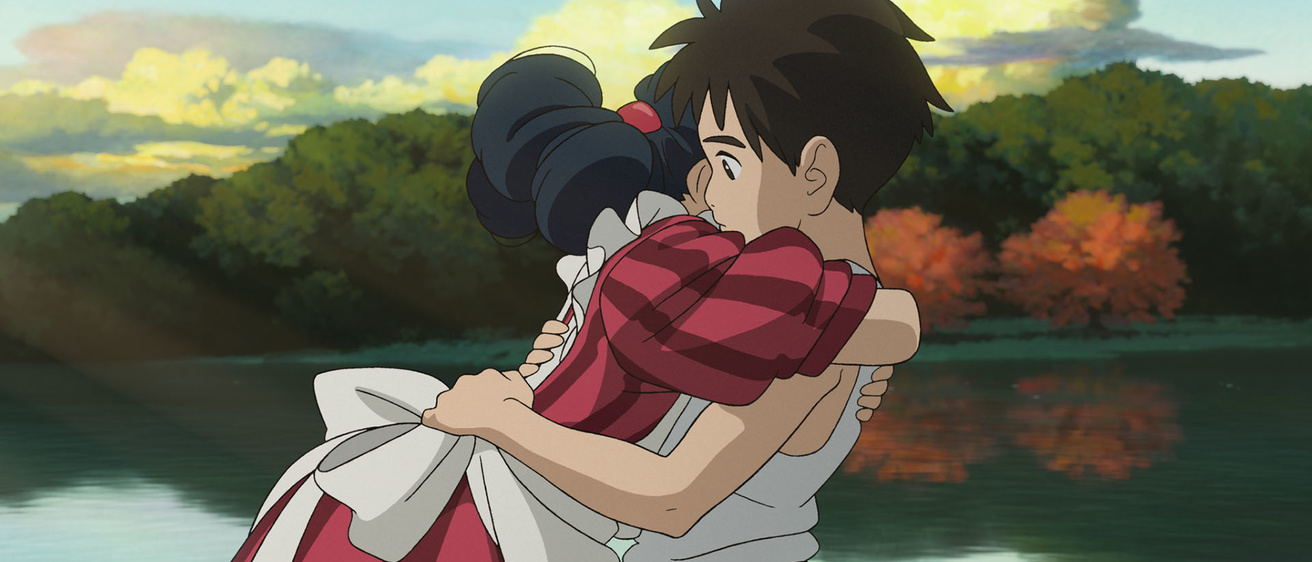SPOILERS AHEAD!
Already breaking Box Office Records, being nominated for a Golden Globe, and being the most successful Ghibli movie in the past decade, The Boy and the Heron is making strides. Hayao Miyazaki took personal stories from his childhood and present, speaking on the responsibilities of world-building and the reality of life. As someone pursuing the art of story creating, who has looked up to Miyazaki since childhood, The Boy and the Heron can be a terrific reminder for all creators. It shows the beauty of making worlds, but also the consequences and the disconnection from reality it instills.
The film starts with a boy named Mahito who is forced to move to the countryside after his mother's death. As he adjusts to his new family brought about by his father's remarriage, a gray heron repetitively catches his attention. The gray heron eventually tells the boy that his mother is still alive. Shortly after this, his father's new wife Natsuko disappears towards a closed-off tower in the woods. This leads to Mahito's suspicion of the Heron’s relation to her disappearance and follows her to the tower. Mahito is then transported to another world, searching for his mother and Natsuko. The story goes forth as Mahito explores a flawed universe with different quirks and principles than his own. He discovers the reality of it, meeting the creator and finding an appreciation for his world.
Towards the end of his adventure, he is offered a large opportunity. The creator of the world he has traveled to has offered Mahito to take over his worldbuilding, for they are related. Mahito refuses to do this, speaking about how he desires to live in his world till death. He talks about how the building blocks of the world are filled with malice, along with himself being filled with malice. This suggests he cannot create a world without flaws. The world then collapses due to a separate character destroying the blocks of creation, bringing Mahito and the gray heron back to reality. There are further details, like how a younger version of his mother decided to go back as well, despite being aware of her imminent death. It is tricky to include every detail over text without overdoing it, although this is the general idea of the ending.
The Boy and the Heron was a beautiful experience from start to finish. Although the beginning starts slow, it turns into a more complex engrossing world as the story progresses. The animation was smooth and the storytelling grew more engaging by the minute. The soundtrack done by the usual Joe Hisaishi also did not disappoint, bringing some strong scenes. Mahito was a unique character compared to most created by Ghibli. He was aggressive and more mature than other children. He attempted to hunt the heron and fight it numerous times rather than having a more peaceful approach. He even goes to the lengths to harm himself with a rock after being attacked by school boys. Mahito is a bit darker and tainted by the world around him, which is an intriguing and different approach to the usual depiction of childhood. It shows how some people did not have the blockage of childhood innocence to protect them growing up, and how difficult things can happen young.
Within the world that is created, it houses other complex characters and figures that are light and dark. It is no perfect world, having death and despair, but also magical creations. There are vibrant creatures that are adorable, including the little white Warawara spirits. It accurately depicts how nothing is black or white, but complex in morals, actions, and thoughts. Aside from that, trying to follow the world can be quite confusing at times, although I believe that was the intention. This movie has a large amount of detail to follow throughout, making it a movie for rewatching. The ending scene is particularly intriguing. The boy is offered an opportunity to escape and create whatever he wants but still chooses to come back to reality in the end. I think this is a direct metaphor for Hayao Miyazaki’s experiences in life. Getting too caught up in a false world can make you forget to enjoy what is real. It is a great message to spread, and a good message to hear as someone whose passion is story-making.
All in all, this movie is worth seeing. It brings back the same energy as previous well-loved Ghibli movies, while also providing a new unique taste. Although slow at the beginning, the art all around does not disappoint. The Boy and the Heron brings a powerful message of enjoying the world around you and not getting too tied up in escapism.
